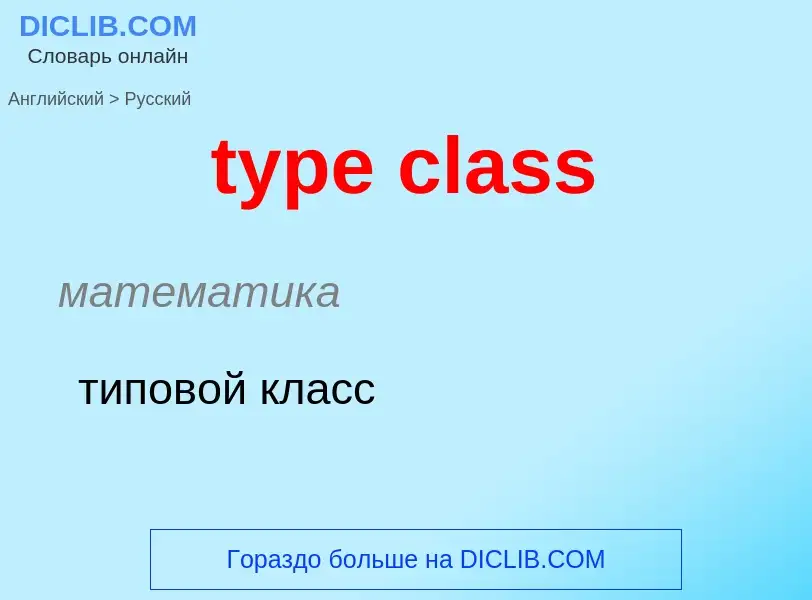Μετάφραση και ανάλυση λέξεων από την τεχνητή νοημοσύνη ChatGPT
Σε αυτήν τη σελίδα μπορείτε να λάβετε μια λεπτομερή ανάλυση μιας λέξης ή μιας φράσης, η οποία δημιουργήθηκε χρησιμοποιώντας το ChatGPT, την καλύτερη τεχνολογία τεχνητής νοημοσύνης μέχρι σήμερα:
- πώς χρησιμοποιείται η λέξη
- συχνότητα χρήσης
- χρησιμοποιείται πιο συχνά στον προφορικό ή γραπτό λόγο
- επιλογές μετάφρασης λέξεων
- παραδείγματα χρήσης (πολλές φράσεις με μετάφραση)
- ετυμολογία
type class - translation to ρωσικά
математика
типовой класс
математика
свойство класса
[,praɪvɪt'membə]
общая лексика
рядовой член парламента
член парламента, не занимающий никакого государственного поста
синоним
Ορισμός
Βικιπαίδεια
In computer science, a type class is a type system construct that supports ad hoc polymorphism. This is achieved by adding constraints to type variables in parametrically polymorphic types. Such a constraint typically involves a type class T and a type variable a, and means that a can only be instantiated to a type whose members support the overloaded operations associated with T.
Type classes were first implemented in the Haskell programming language after first being proposed by Philip Wadler and Stephen Blott as an extension to "eqtypes" in Standard ML, and were originally conceived as a way of implementing overloaded arithmetic and equality operators in a principled fashion. In contrast with the "eqtypes" of Standard ML, overloading the equality operator through the use of type classes in Haskell does not require extensive modification of the compiler frontend or the underlying type system.

